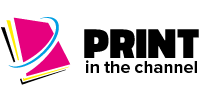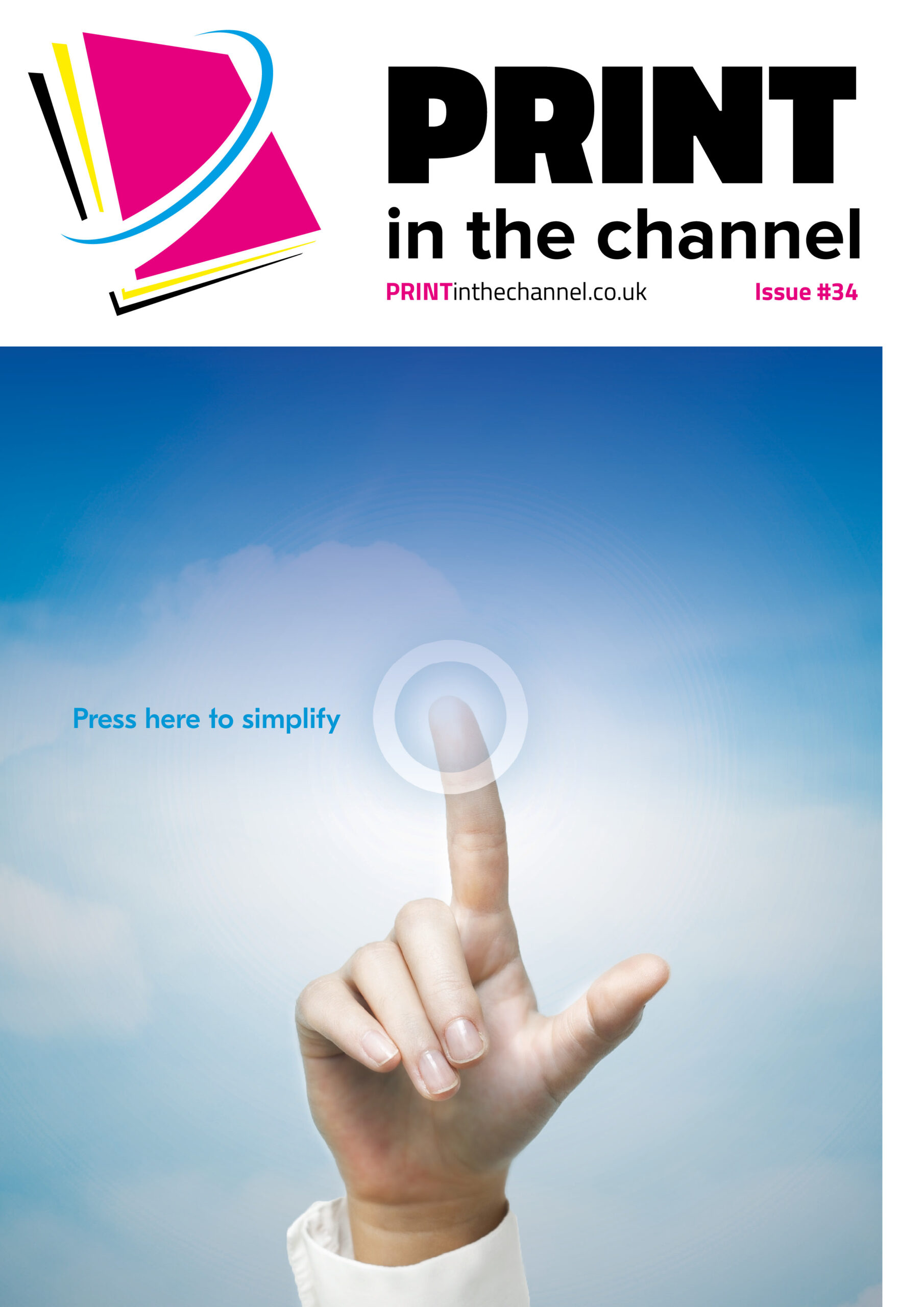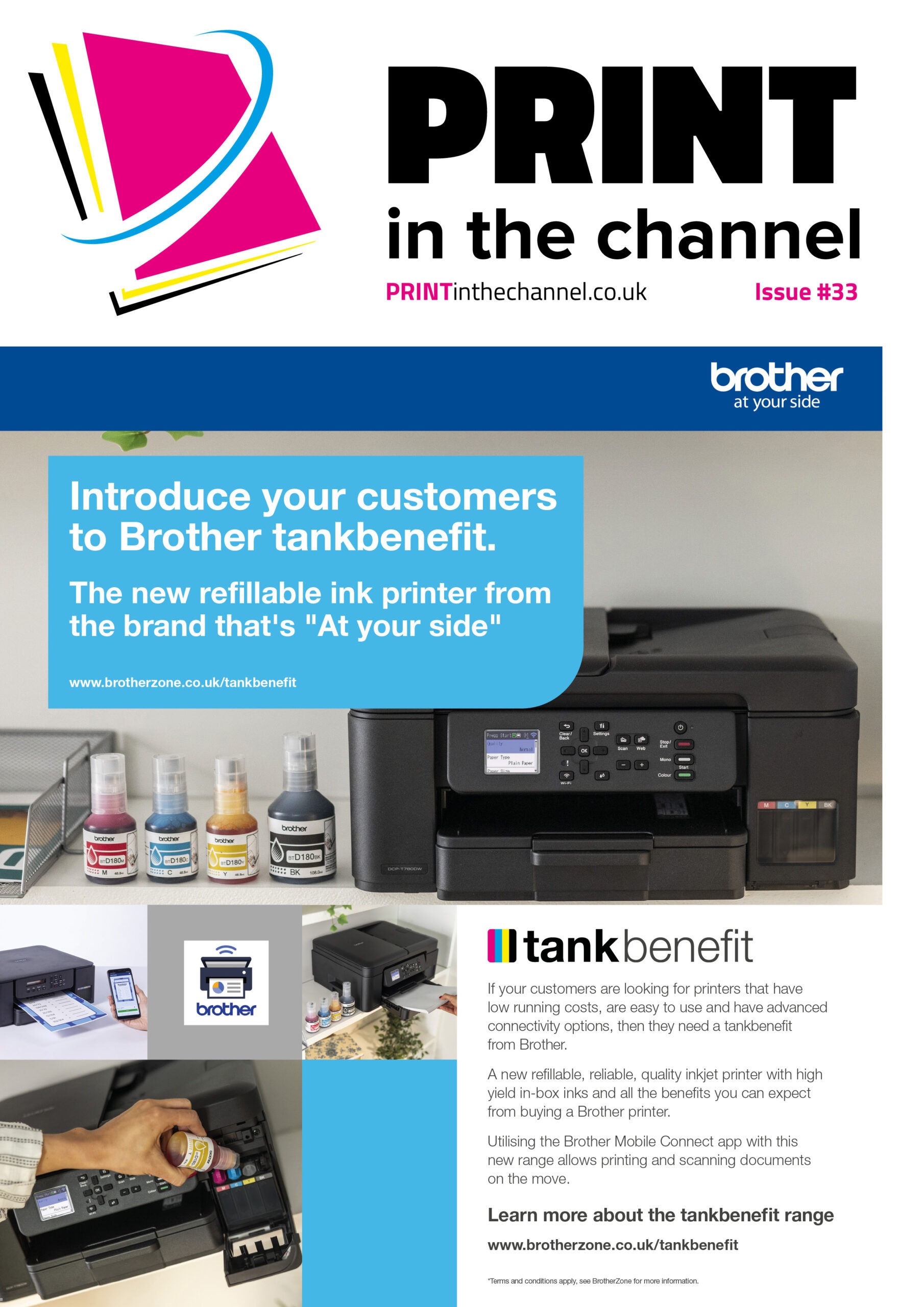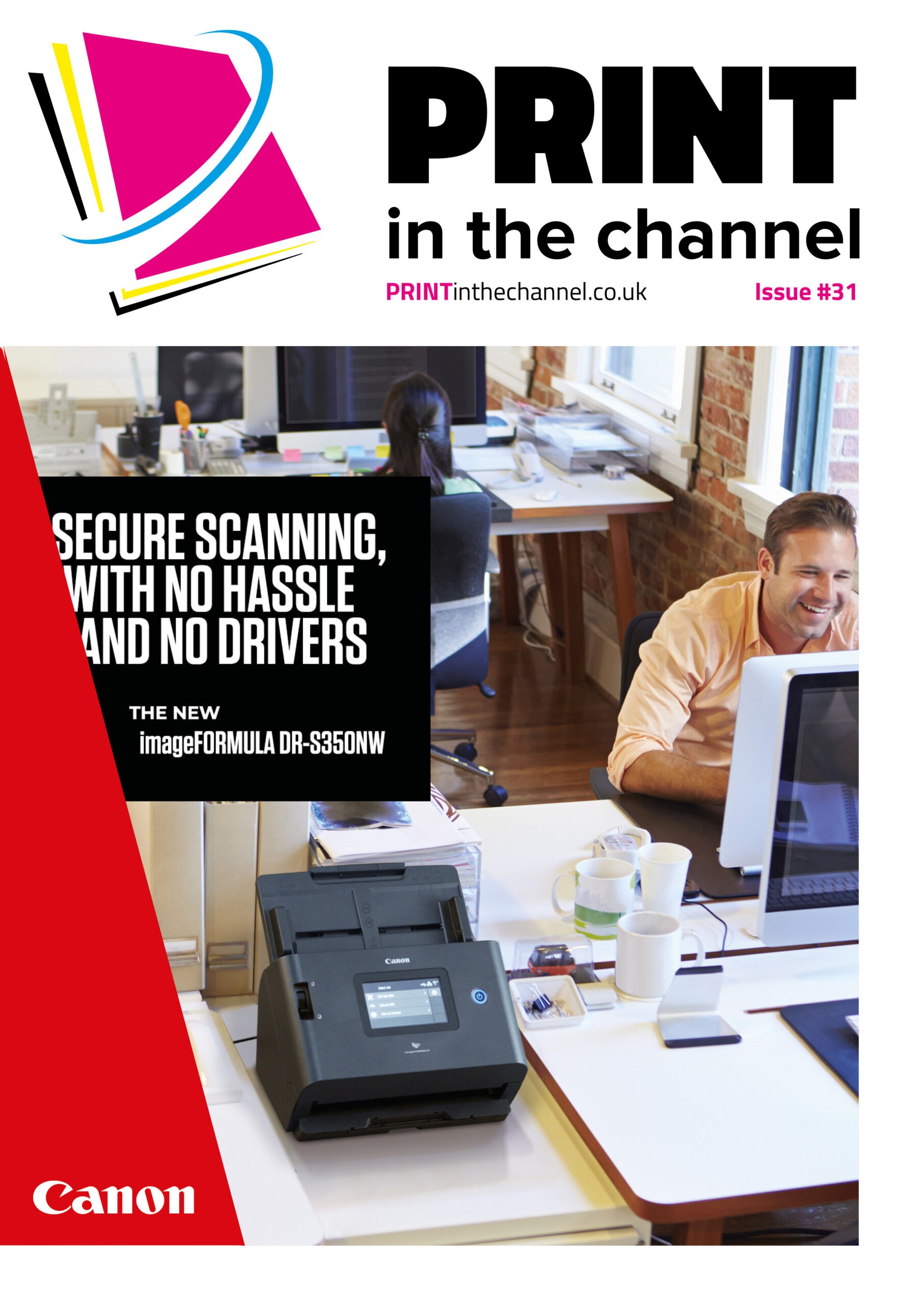Growth and change
The past 12 months have seen growth in the print channel, with new technology providing new opportunities for many. While there have been challenges too, businesses have found innovative solutions to them.
For businesses in the print channel, 2024 has been largely a year of business as usual. For that, there is gratitude – there have been too many years recently where trading has been severely impacted by global events. Of course, business as usual is different to what it was five years ago – but print businesses have adapted to what was previously referred to as the ‘new normal.’
This has presented a range of opportunities for OEMs and resellers in the print sector, as has developing technology – particularly artificial intelligence (AI), which has really come of age in 2024 – that they have looked to capitalise on.
There have also been challenges in the sector too, with print volumes still not recovering to pre-pandemic levels just one that businesses have faced. But again, the sector has responded to challenges with resilience and innovation.
Here, leading players from the print sector give their take on how 2024 was for them, their company and the wider print channel – and what 2025 might hold in store.
Rowan Jeffreys-Hoar, director, partner channel, Ricoh UK
2024 has been a year of continued recovery and growth. Looking ahead to 2025, there’s a clear shift toward a more forward-thinking, growth-oriented outlook.
A personal highlight of the year was being named the top UK reseller at the 2024 Technology Reseller Awards. Ricoh won the Corporate Reseller/Managed Services Provider (turnover £20 million) category, recognising our exceptional business growth and digital transformation over the past year as a reseller.
Additionally, to end 2024 positively, Ricoh won the 2024 Print IT awards in the A3 MFP Vendor of the Year category.
Together, these awards reflect Ricoh’s ability to innovate, adapt, and deliver value to its partners and customers, reinforcing its position as a trusted partner in workplace technology and solutions.
In the print channel, this year’s key trend has been transformation, with businesses expanding their offerings and adding new revenue streams to capture existing and new customer opportunities.
In line with this, we’ve seen strong engagement from our business partners with DocuWare, leading to impressive growth throughout 2024. High retention rates have supported consistent annual renewals and further expansion of on-site licensing.
Another notable trend in 2024 was the rising importance of ESG (environmental, social and governance) requirements. Companies increasingly focus on their carbon footprint and environmental impact, particularly through office products. Ricoh has been one of the ESG leaders in the industry with one of the most comprehensive portfolios in this area. Our technology offers market-leading energy efficiency and consumption metrics that align with ESG goals.
Ricoh has a strong legacy in sustainability, which translates into our work with partners and consultancy that we provide. As an example, we help Agilico to deliver against their net zero strategy through a device refurbishment programme – refurbishing and reselling used devices, some of which only have used 5% of their capacity and have plenty of life left.
Meanwhile, one key challenge in 2024 has been the rapid pace at which customers are reassessing their workplace needs and working patterns and adjusting their budgets for office technology needs. With Ricoh’s range of solutions and the support of our experienced channel experts, we’ve helped our partners stay involved in key strategic conversations. This has allowed them to assist their customers in planning for the immediate future and the year ahead.
Technological advances had a major impact. As the market shifts from traditional on-premise solutions to cloud and SaaS-based services, businesses are looking more closely at manufacturers and partners with the right portfolio and experience to support these changes.
Ricoh has the solutions to help expand these conversations and stay aligned with the rapidly evolving technology landscape. A good example is the growing interest in Ricoh Smart Lockers solution. Many organisations are now looking to integrate this type of technology into their workplaces and add automated workflows to enhance efficiency and streamline processes.
We expect the trends of 2024 to continue into 2025, with growing adoption across the customer spectrum.
These are no longer just strategies for large corporations or enterprises, they are also increasingly embraced within the SMB market. At Ricoh, we are fully prepared and equipped to collaborate with our partners and their customers to leverage these trends and explore new opportunities in workplace technology that drives employee engagement.
Stuart Miller, director UK&I Canon channel partners, Canon
2024 presented channel businesses with a fresh set of opportunities, as well as some challenges. The rapid advancement of technology has meant that it is important now more than ever for manufacturers to focus on strengthening their relationships with channel partners to help them adapt and thrive in the evolving market.
This year, Canon has focused on building a strong value proposition. We are committed to investing in long-term partner relationships, providing them with tailored resources that enable them to offer customers confident, forward-thinking counsel.
Encouraged to find new ways to increase revenue, we have seen channel partners look to expand their offering this year. For example, many of Canon’s partners are now breaking into the Software-as-a-Service space by offering services such as Canon’s uniFLOW Online software. This diversification aligns well with manufacturers and partners priorities of enhancing security offerings.
Alongside security, manufacturers and resellers have continued to focus on optimising workflows so that customers can achieve maximum productivity, without compromising on quality and helping them to achieve wider sustainability goals.
Recent advancements in technology, such as the widespread adoption of AI have unlocked new capabilities in the print market. For example, Canon’s newly developed imageFORCE C7165 multifunction printer harnesses innovations such as machine learning AI to support new levels of security, reliability and quality for businesses. Additionally, this device enables businesses to track environmental performance and monitor their impact, which will continue to be high on the agenda for channel businesses.
By focusing on diversification, channel businesses will be better positioned to respond to increased demand and more complex requests from customers.
However, a key challenge is that many customers may be wary of introducing new services, unless they can demonstrate the return on investment. To address this, manufacturers need to provide resellers with tools that measure performance in line with customers’ business goals.
As technology continues to advance, software and security will only become more of a priority for channel businesses in 2025. Canon is committed to ensuring our sales channel is fit for future success, so we have introduced desk-based sales and repositioned account manager roles to better support our partners. We are also continuing to invest in Canon Business Centres based in the UK&I, offering businesses easier access to new products with greater capabilities.
Gary Organ, head of device technology sales (office) UK, Fujifilm
2024 has been a year of exciting growth for Fujifilm. We successfully entered the UK and European markets, and our recent Apeos launch event generated significant buzz. We unveiled our new colour range, a SDK platform, and our Circular Manufacturing Centre facility. We also announced further developments to our product range, which are set to launch in early 2025.
In terms of key trends this year from customers, we’ve seen a strong focus on security, sustainability and the integration of AI. Fortunately, our new Fujifilm Apeos range is well-equipped to meet these demands. With advanced technology and streamlined processes, we’re supporting our partners and their customers to address these important areas.
Technological advancements continue to shape our industry. Cloud technology has progressed significantly, and we’ve seen strong interest in integrating our technology with leading third-party print management software. The Fujifilm Apeos range is an open platform, compatible with top cloud print software solutions and featuring an SDK for further app development.
There have been challenges this year too. Our primary challenge this year was establishing our presence in the UK market and building our operations from the ground up. We’ve successfully achieved this by assembling a dedicated channel team that is actively selling and recruiting new partners.
While digital transformation will undoubtedly continue, I believe sustainability and security will remain paramount for businesses. Our recently expanded Apeos range, with its market-leading features, is designed to comprehensively address customer challenges in both crucial areas.
Terry Caulfield, chief commercial officer, Brother UK
Print has advanced in many ways in 2024. We’ve broadened our focus beyond traditional print services to meet a growing demand for cybersecurity, cloud software, and subscription-based print solutions. Our managed print services (MPS) and Brother Cloud Solutions (BCS) offerings are helping resellers meet customers’ ever-evolving needs and the growth in these areas highlights the channel’s readiness to embrace emerging opportunities.
Hybrid working has been a key focus this year, with IT leads seeking to improve print infrastructure for decentralised teams. The Employment Rights Bill, which will make remote working the default, creates a new opportunity for resellers to engage with customers and to help optimise their decentralised printer fleets.
Sustainability remains a top priority across the industry, with more customers looking to contribute to circular economies. Earlier this year, we became the first vendor to remanufacture both ink and toner cartridges. We already save more than 5,300 tonnes of CO2 annually from our toner operations, and this will only increase with the introduction of our new ink remanufacturing operations. We provide a free return system for used consumables, ensuring zero waste ends up in landfill.
We’ve seen remarkable progress of AI this year, including its potential for use in MPS. By analysing print behaviour, AI can offer deeper insights, recommend efficient solutions, and proactively address issues, ensuring seamless operations.
Demand for cloud-based print solutions has also surged and along with Tungsten Automation we’re offering customers secure, location-aware printing and digitisation through BCS.
We expect to see remote working, sustainability and cloud services continuing to shape customer decision making in 2025, and MPS will remain essential for delivering efficiency, security and sustainability.
Michael Field, managing director, Workflo Solutions
2024 has been a transformative year for our company and the channel. We’ve seen growing recognition of the value of managed services, with businesses prioritising solutions that enhance efficiency, reduce costs and drive sustainability. The channel has experienced a surge in demand for sustainable solutions, reflecting a shift towards eco-conscious practices.
Sustainability has been a dominant trend, with customers demanding eco-friendly solutions to align with their corporate goals. The shift toward hybrid working has driven interest in cloud-based print and document management systems, enabling seamless access and collaboration from anywhere. Additionally, automation has become a top priority, with businesses seeking to streamline processes and improve productivity through intelligent workflows and digital transformation initiatives. Personalisation of services has also become a critical customer expectation.
Technological advances had a major impact over the year; AI and IoT have transformed operations, enabling predictive maintenance and enhanced analytics. Workflow automation tools have streamlined processes, while cloud integration has redefined how businesses access and manage information.
The trends we’ve seen in 2024 – sustainability, hybrid work support and automation – will continue to dominate in 2025. As businesses adapt to evolving work environments, hybrid solutions and energy-efficient technologies will likely see even greater demand.
Staying agile and responsive will be crucial for navigating 2025. Our focus will remain on staying ahead of these trends to empower our customers with innovative, reliable and sustainable solutions.
Michelle Hu, product director, TSC Auto ID
In 2024, there have been several key trends from customers. This includes a sustainability focus: there is a strong demand for eco-friendly label solutions, including less energy, recyclable materials, linerless labels and digital printing methods that minimise waste and carbon footprints. This trend aligns with consumer preferences, as many are willing to pay a premium for sustainable packaging options.
In addition, customers are placing greater value on labels that incorporate technologies such as RFID, NFC and QR codes. These technologies facilitate real-time tracking, provide interactive product information, and enhance transparency, particularly in sectors like food, pharmaceuticals and retail.
Also, mobile label printing is expected to keep growing across sectors like retail, logistics and healthcare due to its flexibility, efficiency and support for real-time operations. It enables on-the-go labelling, reducing errors and increasing productivity.
Technological advancements have profoundly influenced the thermal label printing industry in 2024, driving improvements in several key areas:
• Support for smart labels: Widespread adoption of RFID and NFC technology enables the production of ‘smart labels’, which improve tracking and data storage capabilities
• Higher resolution and speed: Advances in printing technology allow for sharper, high-resolution outputs at faster speeds, essential for industries requiring detailed barcodes or graphics
• Seamless integration with IoT and smart systems: Modern thermal label printers now integrate seamlessly with IoT networks and smart systems, enabling real-time inventory tracking and management. This advancement helps businesses streamline workflows, enhance accuracy and adapt prevention actions if needed
• Sustainability-focused innovations: The industry’s shift toward sustainability has led to the adoption of eco-friendly materials and energy-efficient designs. Features like linerless labels, Energy Star compliance and recyclable options are becoming standard, significantly reducing waste and environmental impact.
TSC Auto ID and other thermal printer manufacturers faced several significant challenges in 2024, but also had innovative ways to overcome them.
For instance, the rising demand for eco-friendly solutions has driven manufacturers to innovate, which has resulted in the creation of recyclable and compostable label materials, linerless printing solution and green package design that can meet sustainability goals.
Another challenge has been the labour shortage. Due to an aging workforce and recruitment challenges, widespread labour shortages created challenges for industries needing to staff roles focused on data collection and management. To address this, businesses adopted AIDC technologies, automating labour-intensive processes with tools like barcodes, RFID tags, print & apply system and biometric systems. These solutions enhanced data accuracy and minimised waste, proving especially beneficial in sectors such as retail, manufacturing and logistics.
Rising cyber threats have also heightened the need for robust data security and access control, particularly for networked devices like printers. To combat this, organisations prioritised compliance with cybersecurity regulations, such as the UK PSTI, and implemented enhanced security measures for printer firmware to safeguard against potential vulnerabilities.
I believe those trends of 2024 will carry on in 2025 and even longer.










